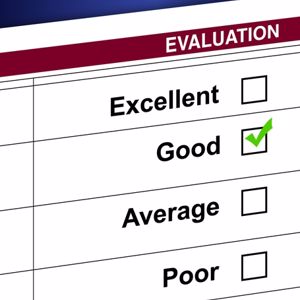
Polling People: A Good Idea or Bad One?
June 23, 2022 5:15 pm Leave your thoughts
Have you ever participated in a customer survey asking you to rank products and services by how likely you'd be to recommend it to someone else? Most of us who take part in email polls or provide customer feedback after a call do so because we think it's worth something. Polling people — customers, in particular — is supposed to be a good thing. However, if done poorly, it can actually be a bad thing for companies to do. Here's why.
What will companies like yours do with the answers? If customers are giving you a few extra minutes out of their busy lives, a) that's a good thing, and b) your business must respect your customers' time. A poorly crafted survey wastes everyone's time and doesn't produce the desired results — engagement, insights and information. There are things your company can do to increase a poll's effectiveness, such as:
- Ask unbiased questions.
- Use the best mode of communication (i.e., text, phone, or email).
- Be brief.
- Be polite.
- Tell people why you're polling them.
- Thank those who complete your survey.
A second reason that a poll could be bad for business is by not using the feedback to make changes. Simple messaging such as, "Thanks to fabulous customer feedback, we've made the same item in more colors," communicates the results of the poll and engenders trust and loyalty. A survey that is worded to show participants that their time and thoughts are valuable ("May we follow up with you?") is the kind of rapport-building tactic that every business requires to stay competitive and grow.
Finally, it won't matter how well-crafted your survey is; if it's sent too soon or too long after a customer's last communication with you, it won't be worth your time. The sweet spot for asking a customer to provide their feedback is between three and six months of buying your product or subscribing to your service according to Business News Daily
One last word about polling. Your business's reputation and success depend on the truthfulness of its marketing practices. It could be tempting to ask customers a leading question like, "Would you recommend our fast, reliable lawn care service to your neighbors and friends?" You could also make misguided assumptions about the customer in your questionnaire. For example, the question, "Throughout the day, how often do you drink sparkling water?" assumes that the customer drinks sparkling water and that they drink it many times in a day. Avoid any potential for misrepresentation of information to consumers.
If you have questions about how to avoid misrepresenting your company, the Law Offices of Donald L. Hudspeth can help. Contact us today.
Categorised in: Starting a Business in Arizona
This post was written by





